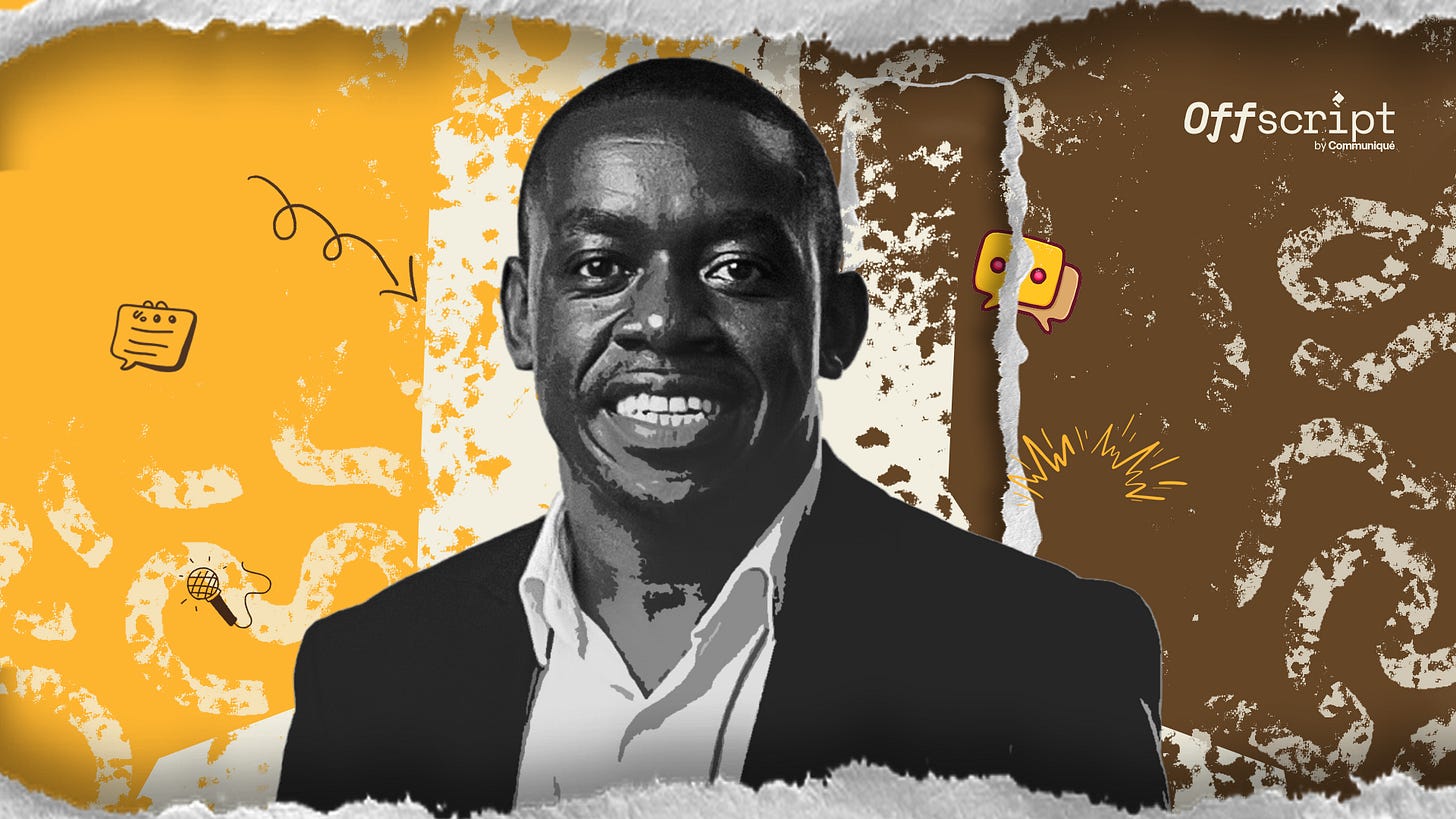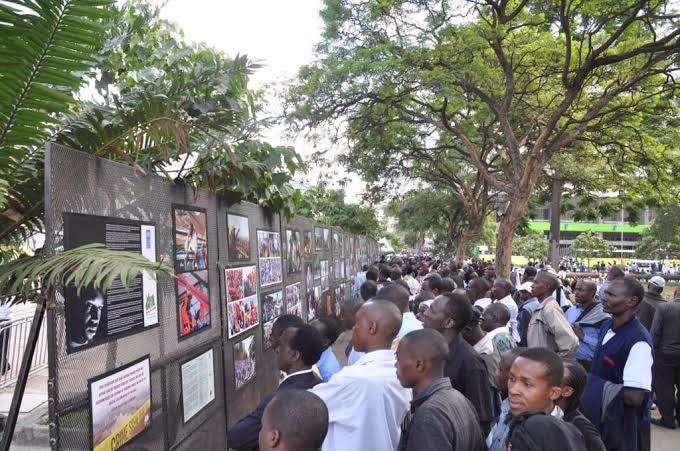Offscript with George Gachara
HEVA’s board chair on building East Africa’s largest creative industry investment vehicle.
“The first mistake I made, as many founders do, was staying too long and burning myself out. I later realised I should have had more balance.”
George Gachara, founding partner and board chair of HEVA Fund, was reflecting on the leadership transition at the firm in 2022. That year, Wakiuru Njuguna, HEVA’s investment manager, succeeded him as managing partner, marking the end of Gachara’s nine-year run leading the company. Under his leadership, HEVA had grown from a small investment collective into East Africa’s most prominent creative financing firm, backed by heavyweight partners such as the European Union, the African Development Bank, and Afreximbank.
However, his understanding of leadership did not begin with HEVA, but many years earlier, as a young boy watching his grandfather, a village head in Nakuru, a small agricultural town in southwest Kenya.
“He was very community-minded. I remember my grandfather's telephone was the village telephone, where people would come to make calls to their relatives abroad. I grew up around the warmth of community and the responsibility of community.”
Gachara soon began to emulate some of the traits he admired in his grandfather, and people around him started to recognise his leadership abilities. In secondary school, he was made head prefect a year earlier than was typical, and by his first year at university, he was already serving as a student representative.
His original plan was to study law at university, but when he enrolled, the law program at his university had not yet been accredited.
So, he began with communication and media studies, intending to switch to law a year later, when, hopefully, the law program would have been accredited. Unfortunately, that was not to be. By the time he graduated, the program had still not been accredited, so he finished communications and media studies with a PR major and a media minor. “It was an accident, but I think it’s the best accident that ever happened to me.”
Apart from student leadership, Gachara began to nurture his creative muscle during his university years, writing his first book, The Reverse Is True, a semi-autobiographical collection of essays, while in his final year. But it was after university that his work began to carry more weight. In 2007, following a tightly contested election marred by irregularities, Kenya descended into anarchy. Ethnic groups and political parties turned on each other as families were displaced. When the violence finally subsided, it left more than 1,000 casualties in its wake.
Gachara found it impossible to look away. “Kenya needed an intervention that was not tribal or politically motivated. Something that brought everybody together after a conflicting election season.”
Working with some of his friends, he created a travelling photography exhibition called Picha Mtaani, showcasing images of the violence. The exhibition toured seven Kenyan towns and cities that had been hardest hit by the violence, helping the country process the trauma. By the time Picha Mtaani ended, it had drawn more than seven million visitors nationwide.
Kenyans viewing Picha Mtaani - Source: George Gachara
Building on the success of Picha Mtaani, Gachara doubled down on his commitment to the arts. In 2012, he co-founded The Nest Collective, a multidisciplinary arts collective, alongside three friends.
From the outset, The Nest Collective set out to achieve two things: to create work that was both creatively excellent and resonant with the times, and to do so in a sustainable way. On the first mission, it quickly found success, producing films like Chico Leco Presents and Stories of Our Lives, which premiered at the Toronto International Film Festival and won international acclaim as one of Kenya’s first LBTQ films. However, the second mission; figuring out how to do creative work sustainably, remained elusive.
“How do we continue to do excellent artistic work, but also grow financially, economically, socially, like our peers in mainstream careers?”
With the royalties from some of its films, the Nest Collective started the Happily Ever After (HEVA) Fund, experimenting with an initial $10,000. The fund’s first cohort backed entrepreneurs like Kawira Mirero, founder of fashion brand Mambo Pambo, and photographer Victor Peace. Soon after, partners like the British Council and Alliance Française joined to support the vision.
At the time, investing in the creative economy as an asset class was still very new on the continent. HEVA had to do the painstaking work of educating investors, and proving that there was a viable business in investing in creative industries.
“Everyone said artists were risky, untrustworthy, unprofitable, and ultimately uninvestable. So the first phase of our work was to convince the ecosystem that artists are, in fact, investable. We did this by generating data to demonstrate that there is a clear investment process, and that investors could trust us with their money.”
Credibility grew as the entrepreneurs HEVA backed began to return the capital invested in them. By 2018, the fund secured its first institutional cheque from the French Development Agency (AFD).
From there, HEVA’s scope widened. Under Gachara’s leadership, the fund moved from backing individual creators to investing in infrastructure and ecosystems.
“We invest across the value chain so that growth can be shared by everyone. This means we might invest in a distributor, a producer, a marketplace, or even a sourcing company, anywhere along the chain at scale—so that there are multiple opportunities for people, not just those directly connected to us.”
The pandemic further sharpened HEVA’s approach. Post-COVID, the fund leaned heavily into the digital ecosystem, supporting content creation and distribution platforms, ticketing companies, and digital marketplaces. Earlier this year, it announced a partnership with Kenyan creator companies Shop Zetu and Wowzi to disburse $5 million directly to creators.
Meanwhile, Gachara has transitioned from the day-to-day running of the firm to serving as board chair. His focus now is on replicating HEVA’s success across the continent, advising entities like the Mastercard Foundation and Afreximbank’s creative industry financing vehicle, CANEX.




